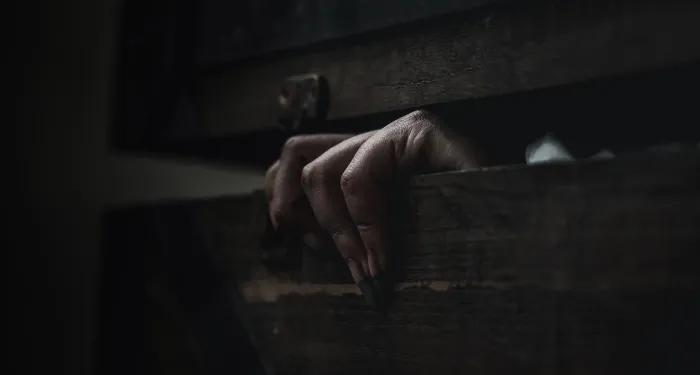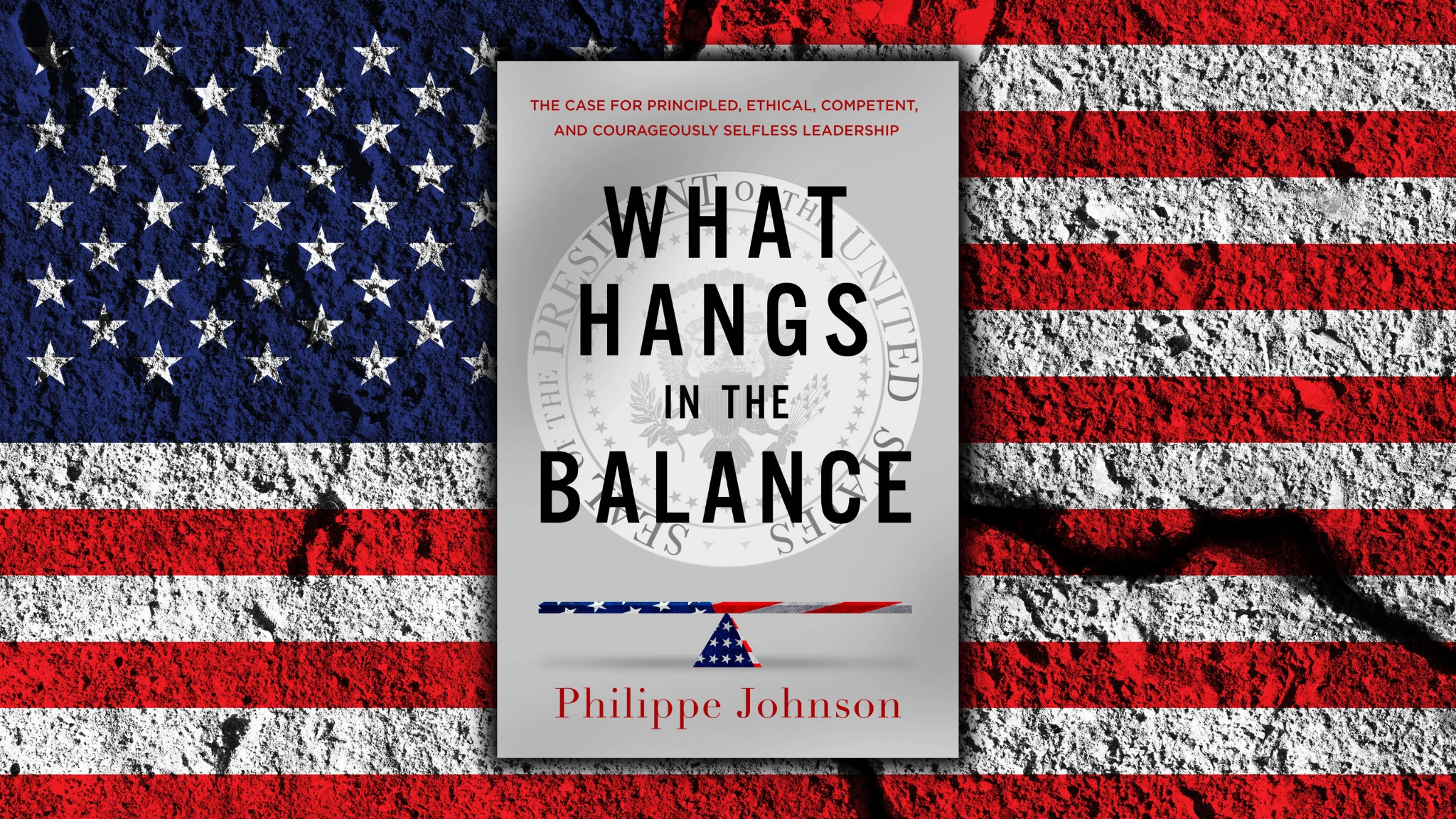Thirty years ago or more, when on my way home to Indiana or on my way back to England, I would stop off in New York City. Barbara Epstein would put me up at her home on West 67th Street. Sometimes I overlapped with Diane Johnson, in from Paris, or Barbara’s daughter, Helen, on her way to Berkeley or London or Kampala. Elizabeth Hardwick said it sounded pretty crowded over there, but it worked, because Barbara and Murray were out all day, whereas she was home all day, and she had only one bathroom. Barbara, too, had only one bathroom, so Lizzie didn’t see how she could stand having us there. Her and Barbara’s apartments were on the same block and were of the same design. Lizzie stressed that however imposing their living rooms were, the rest was tight. I stayed in what had been Barbara’s son Jacob’s room when he was growing up, right off the kitchen.
A small beige quilted pillow sat among plants and Murray’s cassette player on Barbara’s kitchen windowsill. I don’t remember exactly the words sewn into it in red lettering, but the motto said something like “People who are interesting in the morning are boring.” I could hear Barbara’s front door slamming and then her feet as she entered the kitchen with the New York Times that had been delivered. She wore long white cotton nightdresses and spread the newspaper so that it took up most of her round kitchen table. I could hear her make coffee. I knew not to intrude.
Murray also left Barbara alone with the newspaper first thing in the mornings. Then I could hear the changing of the guard over the newspaper in the kitchen. Barbara would head back upstairs, leaving Murray barefoot in a dishrag version of a plaid terry-cloth bathrobe and shaking out cereal into a bowl. It was Murray’s turn to head upstairs to get ready as Barbara was coming back down to head out. They confirmed the evening’s plans at the front door. She was generally amused by his itinerary for the day. While she sat behind her desk until after dark, he moved around the city on his bicycle, from office to courthouse to boxing gym, on the trail, following a story. He knew so much about New York City and its politics, a history he told through its ever-renewable cast of outrageous characters. The city was his beat, Barbara often said.
That tough little pillow was in the windowsill for a reason. There was an element of monologue escape in my polite guest’s morning timing. But at last, I was looting Barbara’s refrigerator. Murray would return to the kitchen in suit and tie, his pipe clamped at the side of his mouth, the better to reminisce about, say, H. L. Mencken. He was thinking of making a collection of columns and calling it Bigotries, an echo of Mencken’s Prejudices. Murray spoke in complete sentences, whole paragraphs. He digressed from a point he would not forget to go back to in order to say that Mencken said that Stalin was from Georgia, which meant the same thing in the USSR as it did in the USA. He was ready to laugh in the mornings, humanity being what it was.
New York always got Murray Kempton at full sail. He had a deep, resonant voice that could not be ignored. It was made for philosophic utterance. More than one subject could be broached between our turning off the kitchen lights, slamming Barbara’s heavy dark wooden door, and waiting for the elevator. A threatening morning could lead to a conversation with a doorman as we descended about how different Waterloo might have turned out for Napoleon had it not poured with rain the night before the battle. Murray had beautiful manners, and he believed in being courteous to secretaries, assistants, underlings, people whose jobs meant that they got kicked around by supposed higher-ups. He addressed everyone as being on the same plane, regardless of their status.
*
I see Murray on the sidewalk in front of Barbara’s building—he looked like he sounded, early American: a pale pink face behind heavy glasses and under hair that had been ginger but was now white and still impressively thick. He is remembered for his accessories: bicycle clips on his trousers, that pipe, headphones around his neck for the Walkman waiting in his pocket. He cannot get on the bike he is holding. One more story detains him. Murray said he was once talking to Gore Vidal, and because he was en route to some place, Gore, in the middle of an anecdote, got on the subway with him. There was a blind man beating his seeing eye dog with a cane. Murray said he was sorry to interrupt Gore, but he was in a bind. He didn’t like to interfere with the pleasures of the disabled, but he felt for the dog. Gore said, “Didn’t you know the blind were the meanest people on earth?” Murray said the sadness in Gore’s voice made him wonder if he hadn’t been talking about his grandfather, the blind senator.
Daily life tested one’s principles. His principles troubled him. The New York Review had a fantastic party for Václav Havel at Lincoln Center, and among the hundred or more guests was Henry Kissinger, conspicuous because he was alone, shunned. I heard someone say that he wanted to go over and slap the creep he considered a war criminal. Then I saw Murray enter the bright, empty space around Kissinger. His socialism had been high church, and his Christianity was an extension of the labor unionism of his youth. He said later that Kissinger should not have been invited, but once he had been, he became the Review’s guest, like everyone else there. He said when someone asked Kissinger’s brother why he had no accent while Kissinger’s accent was so heavy, his brother replied that that was because Kissinger never listened to anyone else. Murray had wit, a man of honor who was not a bore. His principles were private, an inner flame, the self alone with the self.
An ancestor of his was the author of the notorious Fugitive Slave Act of 1850, which, among other provisions, made a criminal of any white person in the North aiding a black person who had fled bondage in the South. It was not a history Murray saw himself as needing to atone for so much as to heed closely. Ancestry on the unjust side made this history very personal to him. From his decades of reporting, he knew more about twentieth-century black history than I did. He was from that era when civil rights organizations were desperate to have the mainstream, i.e., white press interested in their campaigns and on hand to witness, to describe, especially before the television cameras began to cover demonstrations. In the early days of civil disobedience and sit-ins and trials, black leaders believed that the presence of white journalists acted as a restraint on local and state police forces.
Murray’s sympathy for the Wobblies and the Popular Front expressed the hope for what used to be called a more pluralistic America. I told him about a book on the Communists in Harlem, who in 1934 decided to make their white guys take dance lessons so that black women comrades would have partners at party functions, because the black men were always so busy with the white women. He liked to say that for guys like him World War II had been their first chance to meet people different from themselves. But he’d already been doing that as a young white guy in Baltimore in the 1930s drawn to black music and not afraid to venture into the black part of town.
In the evenings Murray’s bicycle was parked between the elevator and Barbara’s big brown door, and if it was not press week, then she’d organized dinner by telephone. She’d slam the front door not long after the chicken and vegetables had been delivered. Murray would be busy quoting Louis Armstrong as she placed a platter in his hands, or he’d follow her from the kitchen into the dining room while she carried a bowl, he on to something Duke Ellington or Billy Strayhorn had said. We’d hear the elevator and soon the most astonishing people would be walking through the door.
Edward Said and Barbara agreed that there was little difference between a Likud and a Labor government, and that it was this realization that made Rita Hauser so smart. Mariam Said remembered that the first time she was taken to Baghdad, they went to the movies, and the audience drank from the same cup when refreshments were handed around. Edward and Murray agreed on the Latinate awfulness of the King James Bible and the elegance of the Coverdale Psalter. Edward once had breakfast with Jimmy Carter. He had asked an aide if he was accessible, then Carter himself came down the stairs and said that he was, and he would give him his private number to prove it.
Murray did not need much of a prompt to tell Richard Nixon stories. Nixon always referred to Murray as an old friend and trusted adviser, which Murray said was the language of the friendless. Murray once said that Nixon said the country was vindictive. That was a favorite word of Nixon’s. Barbara Bush was the most vindictive woman in Washington, according to Nixon. Murray said Nixon hated successful Republican presidents and loathed Reagan most of all because he got away with everything.
It was a mystery to me, Murray’s succor of Richard Nixon. After all, the subjects Murray was most passionate about were people who suffered and lost and lost yet again. I heard that when Murray’s eldest son was killed in an automobile accident, Nixon wrote him a long letter of condolence. Murray’s son had objected to the Vietnam War draft, and I wondered if his eventual anger at Bill Clinton, the draft dodger who became commander-in-chief, did not contain rage toward a dead son that he could not express otherwise.
*
Family life was a shadow that never lifted. Barbara’s version of it on West 67th Street had its complications. After more than a decade with Barbara, Murray was still technically married to his second wife. Every other weekend, he had custody of his adult son, Christopher, who suffered from severe autism, and for whom he kept his grimly functional apartment on West 87th Street. Estranged for a time, Murray’s daughter Sally had changed her name and gone to head an ashram upstate, and her little brother David had followed her into the sect. Murray’s second son, Arthur, had the wavy hair Murray had when young and would go on to write a history of Motown. Their mother, Murray’s first wife, still lived in the house down in Princeton.
When Jacob Epstein got married, his father told him he could not see a bride without seeing a plaintiff. But even after Jacob’s father remarried, he telephoned Barbara every day for the rest of her life. Murray called Jason Epstein my husband-in-law. Lizzie sometimes let herself notice that Jason and Murray, both brilliant, eccentric, attractive, could not have been more unalike in their treatment of her friend. Murray was gallant and guilty, and Jason was, well, not those things. Either feminism was another doctrine to be skeptical toward or it wasn’t. “There is a little bit of farce in every tragedy,” I once heard Barbara say. Murray was a bold declaimer of his love as we cleared dishes. He defined a great beauty as the woman no man was not better for having known. Barbara pretended he was talking about Elizabeth Taylor.
Some mornings Murray did not hit the streets right away. His pipe waited for him to remember to relight it. In my memory I associate his kitchen quiet with Samuel Johnson’s An Account of the Life of Mr. Richard Savage, which Murray never seemed to cease from studying. Richard Savage, eighteenth-century failed dramatist, irregular poet, satirist, dead in a debtor’s prison—Murray believed that Johnson had a clear sense of his disastrous temperament, his follies, his self-inflicted misfortunes, even if he overvalued the work. It was the sheer mess Savage made of his life that seduced Johnson. Savage never found a stranger whom he didn’t leave a friend nor had a friend he did not oblige to become a stranger, Johnson said. Samuel Johnson can sound like Murray Kempton writing about the moral challenges in the lives of losers. He would not reproach a criminal already in the executioner’s hands. Savage appreciated virtue but was not himself virtuous, Johnson said. He was “the friend of goodness.” Pure Murray.



















 English (US) ·
English (US) ·